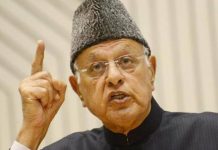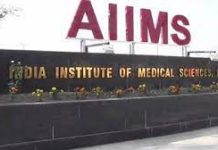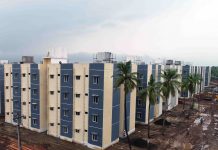 The outcome of the District Development Council polls in J&K has been along expected lines with People’s Alliance for Gupkar Declaration (PAGD) sweeping Kashmir and the BJP parts of Jammu. Though the BJP emerged as the largest single party with 74 seats, three of them in Kashmir Valley, it has won almost all of its seats in six districts of Jammu division — Jammu, Udhampur, Samba, Kathua, Reasi and Doda.
The outcome of the District Development Council polls in J&K has been along expected lines with People’s Alliance for Gupkar Declaration (PAGD) sweeping Kashmir and the BJP parts of Jammu. Though the BJP emerged as the largest single party with 74 seats, three of them in Kashmir Valley, it has won almost all of its seats in six districts of Jammu division — Jammu, Udhampur, Samba, Kathua, Reasi and Doda.
On the other hand, the PAGD won over 100 seats, many of these in Jammu too. National Conference (NC), a constituent of the PAGD won a good share of its seats in Poonch, Rajouri, Kishtwar and Ramban districts of Jammu. In Doda, BJP’s former minister Shakti Raj Parihar lost the election to a National Conference candidate, while the NC leader and the former minister Abdul Gani Malik emerged victorious from Mahore constituency in Reasi district.
However, the independents have won big in the election. Their number is 49 and they hold the key to which party or the alliance rules a district.
While the PAGD is forming its government in 9 district councils in Kashmir Valley, Srinagar district still remains undecided as independents are leading in the district and it’s unclear which way they will go. However, many of these independents are expected to have been fielded by different parties including the BJP. It will be interesting to see which party or the alliance the independents will join.
There are 140 DDC seats each in Jammu and Kashmir regions. Both regions have 10 districts each, constituting total 20 districts in the UT. Each district comprises 14 seats, resulting in a total of 280 seats.
A day ahead of the counting on December 21, the government detained several PDP and NC leaders, including Naeem Akhtar, Sartaj Madni, Peer Mansoor and Hilal Ahmad Lone. No reason was offered for the arrests.
Spin on the outcome
The parties were quick to give a favourable spin to the results. The BJP tomtomed its emergence as the single largest party and winning of three seats in Muslim majority Kashmir Valley. According to the saffron party, it was a vote for the abrogation of Article 370 in August 2019.
BJP general secretary Vibodh Gupta said the poll outcome was the expression of the public support for the leadership of Prime Minister Narendra Modi.
“People have expressed faith in Hon’ble PM Narendra Modi’s vision of Naya Kashmir, and sabka saath, sabka vikas, sabka vishwas,” Gupta, who is also the party’s in-charge for Kashmir, said.
But the top PAGD leaders said their potential control of a majority of the 20 DDC seats was a proof of the people’s disapproval of the revocation of Article 370.
“The DDC results have made it clear that people of J&K voted en masse for @JKPAGD thus rejecting the unconstitutional decision to abrogate Article 370. They have overwhelmingly supported @JKPAGD which stands for the restoration of J&Ks special status”, PDP president Mehbooba Mufti said. The National Conference leader said that the results had proved that their support base straddled Kashmir and Jammu. “We aren’t Kashmir based parties, we are political parties with strong support in both Kashmir AND Jammu,” the NC leader tweeted.
Both leaders urged the centre to review its decision to erase J&K autonomy in view of the people’s verdict in J&K.
The high stakes election had earlier drawn the attention of no less than the home minister Amit Shah. In a series of tweets on November 17, Shah had called the PAGD a gang that was out to “take J&K back to the era of terror and turmoil”. This was obviously an attempt to frame the contest as one between nationalistic and anti-national forces apparently to shore up the BJP’s base in Hindu majority Jammu. This gave the DDCs, otherwise charged with the development of the districts. a conspicuous political dimension.
The primary function of district councils is to push the development through direct funding from the Centre. The councils, in the absence of an assembly, will be the link between the people and the government in the union territory and each DDC chairperson will enjoy the status of a junior minister.
Beyond boycott
The DDC election had an implicit go-ahead from the Hurriyat Conference – it’s both factions — which stopped short of calling for the boycott, the first time it did so. Only boycott call came from the ailing top separatist leader Syed Ali Shah Geelani who resigned from the Hurriyat faction led by him in June. But other than the parts of South Kashmir where the people largely boycotted the election, people in other parts of the Valley did cast votes in reasonable numbers.
The significance of the DDC polls, at the same time, is also beyond the boycott debate. Being the first election to be held following the repeal of Article 370, it turned into a veritable popular referendum on big political questions about the region. Kashmir based major regional parties who oppose the erasure of J&K autonomy banded together to take on the BJP. This made the election into a contest between the BJP that repealed the autonomy and the PAGD that wants it restored. This includes the Congress which was in a loose seat-sharing alliance with the anti-BJP political grouping.
Politics of the DDCs
Being directly elected, the DDCs are required to exercise the complete authority over the district. This makes them like mini-assemblies. And going by the number of the districts, there will be twenty of the DDCs in J&K. The party which controls them will control the union territory. It wouldn’t matter much which party controls the Assembly, considering the fact that an MLA will have no sway over a DDC, despite being its member. The new rules have given an MLA no role in the election of the DDC chairperson and vice-chairperson or in their removal. The divergence will be starker when the MLA and the DDC chairperson are from different parties. They will, in all likelihood, work at cross-purposes.
The DDCs are supposed to be development centred but this in no way detracts from their conspicuous political function. A party or an alliance that won the majority of the DDCs sees it as a vote for its political ideology, much like the party in an absolute majority in the Assembly would, something that has happened now. The DDCs are also electorally more important as its members will be more closely in touch with their constituents. and in a better position to address their grievances. So, a party not in control of the majority of the DDCs will find it exceedingly difficult to dominate the Assembly.
As far as the mainstream politics, contesting and winning the DDC polls will thus be a pre-requisite to making a mark in an Assembly election. This should explain the PAGD’s decision to take part in the exercise, ignoring a significant section of opinion in the Valley that would have wanted the grouping to boycott. “The DDC polls have brought back electoral politics to J&K,” said Naseer Ahmad, a columnist. “The election will broadly determine and define the contours of the post-Article 370 politics of J&K”.
letters@tehelka.com













